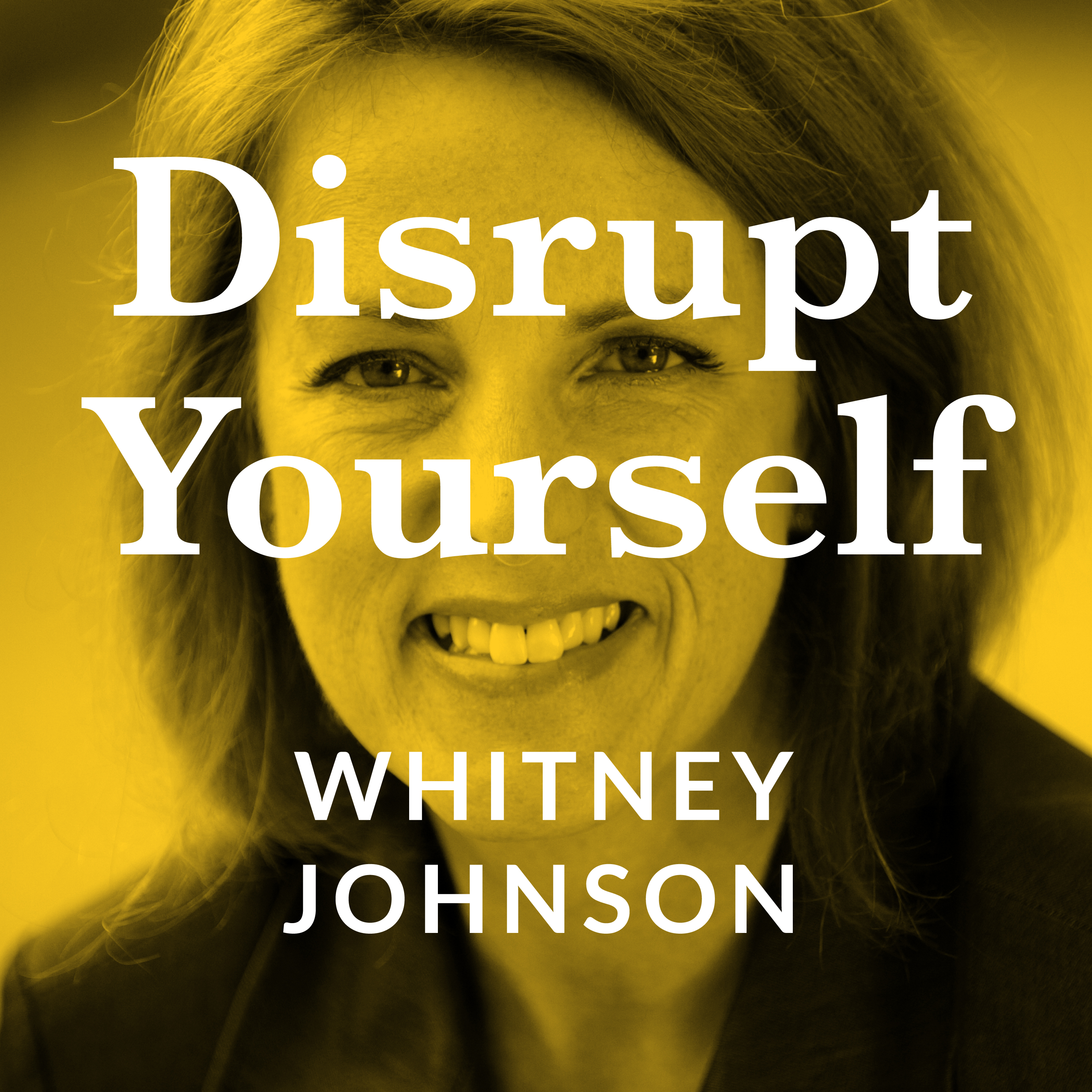
Eric Ries: Transforming Companies Through Continuous Innovation

Disrupt Yourself Podcast with Whitney Johnson
Shownotes Transcript
Today’s guest is Eric Ries, author of The Lean Startup, a book that has sold over a million copies. He’s also the author of The Startup Way, a nuts-and-bolts, dollars and cents, how-to-do-the-math guide that shows how to make entrepreneurship a core discipline of your business.
Takeaways from this Episode:
- No one gets things done in your organization the way “the process” says they get things done. The only way to find out how the company actually works is to run experiments and identify the real levers being pulled to create success (or a lack thereof) in your projects.
- If someone has been with you for a few years, it’s likely that what they do is very different from what their job description says they do. As they’ve discovered problems that need solving, they’ve stepped in. Are these people being rewarded for just how much they’re contributing? Are you? Also, as you analyze the jobs they’re actually doing, you will discover that this breach that they’ve walked into can signal opportunities for your organization to play where others aren’t, to take on market risk, and to disrupt.
- As you build out a business or career and are at the low end of the learning curve (where it looks like nothing is happening), when metrics that you would use if you were established (like revenue) are effectively zero, use innovation accounting. Find out what your “leap of faith” assumptions are and find ways to test what will happen if they are true and if they are false. As Eric says, “It's better to have bad news that's true rather than good news that we just made up.”
- Learning is an essential unit of progress. It’s important to put a price not only on success, but on information as well. What have you learned from success? What have you learned from failure? This information will be invaluable to you as you continue along your S-curve.
- Be willing to re-examine yourself, especially as you interact with those that come from a different perspective from you. What can an engineer learn from a marketing specialist? Think of one person in your life who is an “Other,” and instead of trying to make how you feel around them go away, take a moment to examine the situation. What is there to learn? This intellectual collision can cause real disruption—if you will allow it.
Eric is no stranger to failure. When the dot-com bubble burst, Eric’s dorm-room startup company came crashing down, along with his dreams of instant success and wealth. While interviewing for jobs after graduation, Eric was surprised when one company seemed particularly excited to hear about his startup experiences. They wanted to know what he had learned, especially regarding strategy, leading Eric to do some soul searching about what he had learned.
“I realized…I think the most important lessons I learned from that were just what startup chaos and failure looks and feels like.”
Years later, when a startup he was working for began to flounder, Eric recognized some of the same warning signs of failure from his own business. Instead of joining in the panic around him, he decided to focus on what he could learn from the similarities and differences of the two experiences. Over time, this analysis led to the creation of an entrepreneurial management framework, and The Lean Startup was born.
From innovation accounting to how startups can utilize the scientific method, Eric is a fascinating resource for entrepreneurs, or for any company that is looking to energize their next project.
Show Notes - http://whitneyjohnson.com/eric-ries)